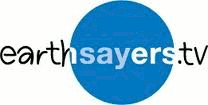Massive Open Online Conferences?

Give a listen to this interview with the folks at Udacity. It's an excellent window into the thinking behind what is happening in education called Massive Open Online Courses, (MOOCs). It's with the founders of Udacity, David Evans and Sebastian Thrun as interviewed by Dick Gordan on The Story. Click here. It gives one pause as to how the concept applies to conferences.
Think about what is said about scalability, format, and tradition in terms of your work in meeting and conference planning as what they talk about impacts both logistics and program. If listening to the podcast results in a discussion, all the better, but this posting is meant to be educational and to encourage professionals to learn more about MOOCs and experiment.
Sponsorships
For me, coming from a marketing history, an online video preference, and a strong will to increase sustainability awareness, there is much here that is applicable to conferences: Conferences with the intention to educate, inspire, and promote sustainability and an objective of extending audience reach while reducing the carbon footprint events create. It just so happens that extending audience reach with tools such as video streaming is generally an "upgrade" to the sponsorship packet that sponsors are willing to pay for and cover the "additional" expenses of the conference organizers, now considered out of the norm. Post conference education comes in here as well with the conference being but one element of a multi-step learning and awareness objective that may span years.
HYBRID Events
And the MOOC concept goes beyond logistics and technology. We have to rethink the very format of the meeting itself, making it more experiential and engaging, rather than the one to many, lecture model of which the panel is just a slight variation. There is lots of work involved, but we have the possibility of scaling from hundreds to thousands our rich message of sustainability and mazimize the meeting as a learning experience. It doesn't mean the end of getting together, but, rather, hybrid events.
Learning Theory
From a blog about open and online education is information about the learning theory behind a MOOC. It's "based on the theory of ‘connectivism‘ *which embraces an active learning approach. One learns through participating in activities. It emphasizes doing - discussing, reflecting and applying. Learning comes through action." And here are some of the tools you may need to learn about:
1. Aggregating
2. Remixing
3. Repurposing
4. Feeding Forward.
As carbon emissions from air travel continue to be felt in the pocketbook of attendees through increased fares, (carbon footprint calculator) the budgets for travel of any kind remain at best fixed, and as the attendee numbers for conferences don't meet expectations, it will become incumbent upon all of us to find ways to educate, inspire, and motivate our members, customers, partners, and citizens.
P.S. Udacity is similar to services such as Coursera and edX, the latter recently announced by Harvard and MIT.
*Connectivism was introduced as a theory of learning based on the premise that knowledge exists in the world rather than in the head of an individual.
Ruth Ann Barrett, EarthSayers.tv, May 24, 2012

